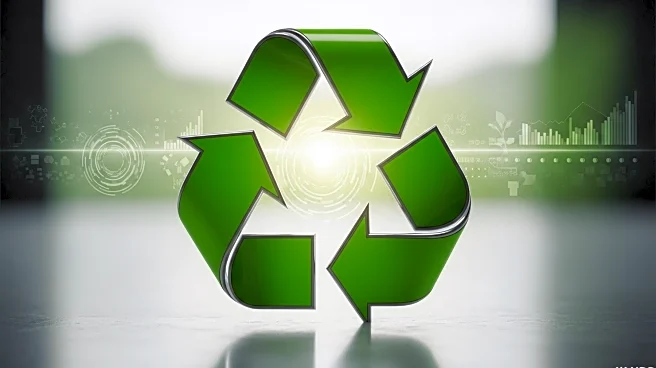What's Happening?
Canon UK & Ireland, in collaboration with Waterloo Business Management (WBM), has successfully completed the first year of their closed-loop recycling initiative. This program focuses on the sustainable recycling of printer consumables, specifically toner cartridges and related products. In its inaugural year, the initiative managed to redirect 33,800 kilograms of waste from landfill sites, reintegrating these materials back into production processes. This effort is part of Canon's broader strategy to achieve net-zero greenhouse gas emissions across its entire product life cycle by 2050.
Why It's Important?
The initiative represents a significant step towards sustainable business practices, highlighting the importance of recycling in reducing environmental impact. By diverting substantial amounts of waste from landfills, Canon and WBM are contributing to the reduction of greenhouse gas emissions, which is crucial in the fight against climate change. This program not only supports environmental sustainability but also sets a precedent for other companies to adopt similar practices, potentially leading to widespread industry changes in waste management and recycling.
What's Next?
Canon aims to continue expanding its recycling efforts, with the goal of achieving net-zero emissions by 2050. This will likely involve scaling up the current program and exploring additional avenues for sustainable practices across its product life cycle. As the initiative progresses, Canon and WBM may seek to involve more partners and stakeholders to enhance the impact of their recycling efforts. The success of this program could inspire other companies to implement similar initiatives, fostering a broader movement towards sustainability in the business sector.
Beyond the Headlines
The closed-loop recycling initiative not only addresses environmental concerns but also reflects a growing trend in corporate responsibility and ethical business practices. By prioritizing sustainability, Canon and WBM are aligning their operations with consumer expectations for environmentally friendly products and services. This shift could lead to long-term changes in how businesses approach product design, manufacturing, and waste management, ultimately contributing to a more sustainable economy.










